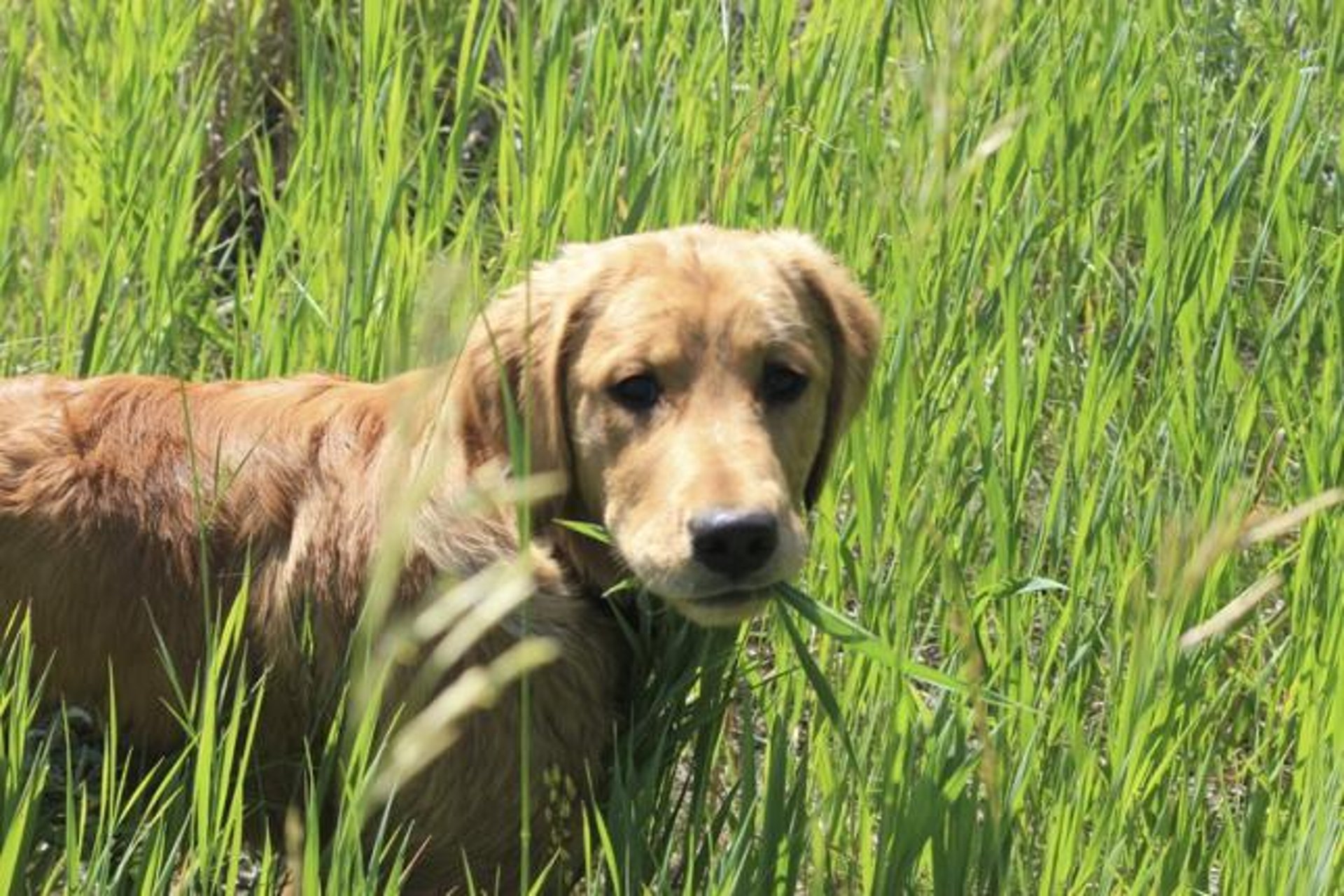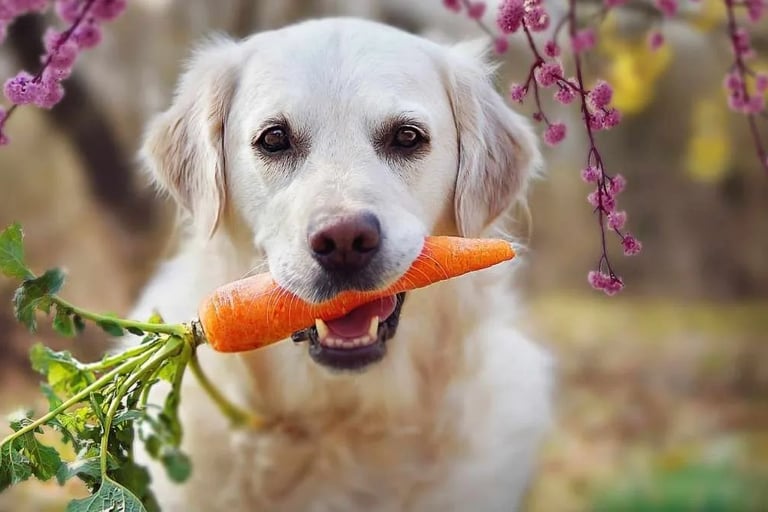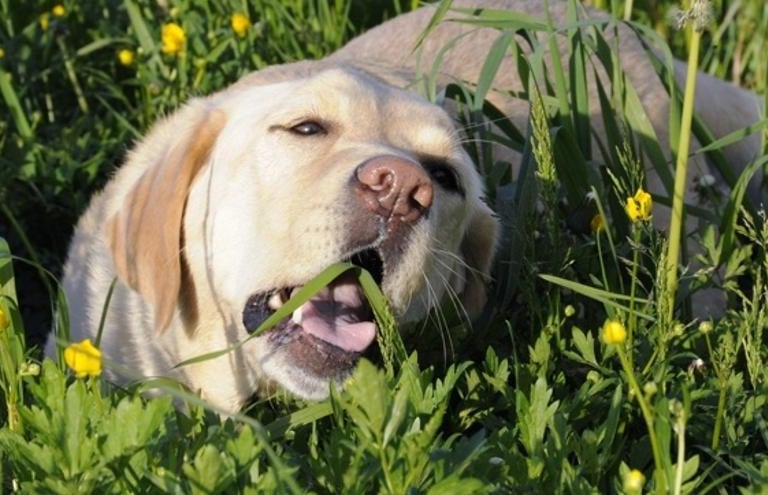
Why Do Dogs Eat Grass? A Comprehensive Analysis of This Canine Behavior
Discover why dogs eat grass, whether it is dangerous, and how to manage this behavior. Learn about its causes, from natural instincts to health issues, and practical tips for dog owners.
PETS
2/10/20254 min read
Introduction
One of the most curious behaviors dog owners observe is their pets eating grass. This action can raise questions and even concerns about the animal's health. While some people believe it is a sign of illness or stomach discomfort, the reality is that there are various reasons why dogs ingest grass, and in most cases, it is not a cause for alarm. In this article, we will explore the possible explanations for this behavior, from instinctive factors to health-related causes, and how to determine if intervention is necessary.
Common Reasons Why Dogs Eat Grass
Instinctive and Evolutionary Behavior
Dogs are descendants of wolves and other wild canids that occasionally consumed plant matter. In their natural habitat, predators not only eat the meat of their prey but also the stomach contents of herbivores, which includes plants. Eating grass could be a remnant of this ancestral behavior. Additionally, some experts suggest that grass provides fiber, which helps improve digestion.Nutritional Deficiencies
Although commercial dog food is typically complete and balanced, some animals may instinctively seek supplements in their diet. Grass contains fiber, which could help improve digestion and promote intestinal transit. If a dog has deficiencies in certain nutrients or fiber, it might turn to grass to compensate. However, this is more common in dogs with unbalanced or low-quality diets.Digestive Issues and Self-Medication
One of the most widespread beliefs is that dogs eat grass when they feel stomach discomfort. While not all dogs vomit after ingesting it, some may do so to relieve indigestion, expel toxins, or get rid of something causing discomfort in their digestive tract. However, studies have shown that most dogs that eat grass do not show prior signs of digestive illness.Boredom or Anxiety
Eating grass can also be a repetitive behavior linked to boredom or anxiety. Dogs that do not receive enough physical exercise or mental stimulation may develop unusual habits such as licking objects, chasing their tails, or compulsively eating grass. In these cases, it is important to evaluate whether the dog is receiving enough attention and activity.Taste and Personal Preference
Some dogs simply enjoy the taste and texture of grass. Certain plant species may be particularly appealing to them. If a dog eats grass without showing any signs of discomfort or illness, it is likely just a harmless dietary preference.
Is It Dangerous for My Dog to Eat Grass?
In general, eating grass is not harmful to dogs, as long as it has not been treated with pesticides, herbicides, or other toxic chemicals. However, there are some situations where excessive grass consumption could indicate an underlying issue:
If the dog frequently vomits after eating grass.
If it shows signs of lethargy, loss of appetite, or general discomfort.
If the behavior becomes compulsive and recurrent.
If the grass consumed belongs to species toxic to dogs.
If you notice any of these signs, it is advisable to consult a veterinarian to rule out digestive problems or other conditions.
What to Do If My Dog Eats Grass Frequently?
If you notice your dog consuming grass regularly, consider the following:
Review its diet: Ensure it is receiving a complete and balanced diet with sufficient fiber.
Increase physical and mental stimulation: Providing games, interactive toys, and longer walks can reduce compulsive behaviors.
Avoid access to areas with pesticides or toxic plants: If you have a garden, verify that the plants are safe for consumption.
Consult a veterinarian: If the behavior is excessive or accompanied by other symptoms, it is important to rule out health issues.
Types of Grass Dogs Prefer
Not all grasses are the same, and dogs may show a preference for certain types. Some grasses, such as wheatgrass or barley, are softer and easier to digest, while others may be rougher and cause irritation. There are even commercial products like "pet grass" specifically sold for pets that enjoy this behavior.
Differences Between Breeds and Ages
The behavior of eating grass can vary depending on the breed and age of the dog:
Breeds: Some breeds, such as Labradors or Golden Retrievers, are more prone to eating grass due to their curious and voracious nature.
Age: Puppies, in their exploratory stage, may be more likely to try grass, while older dogs might do so due to digestive or dental issues.
Relationship with Other Behaviors
Eating grass may be related to other canine behaviors, such as:
Pica: A disorder in which dogs eat non-food items like dirt, rocks, or plastic. If your dog exhibits this behavior excessively, it is important to consult a veterinarian.
Coprophagia: Some dogs that eat grass may also have a tendency to eat feces, which could indicate a nutritional or behavioral problem.
Common Myths About Eating Grass
There are several myths surrounding this behavior that are worth clarifying:
Myth 1: "Dogs eat grass only when they are sick." While it can be a sign of discomfort, this is not always the case.
Myth 2: "Grass is harmful to dogs." In general, it is not, as long as it is not contaminated with chemicals.
Myth 3: "Dogs eat grass to purge themselves." There is no scientific evidence to support this idea.
Safe Alternatives to Satisfy This Behavior
If your dog enjoys eating grass, you can offer safe and controlled alternatives:
Pet grass: Available at specialized stores, it is a safe and chemical-free option.
Fresh vegetables: Foods like carrots, cucumbers, or spinach can be a healthy addition to its diet.
Interactive toys: For dogs that eat grass out of boredom, toys that stimulate their minds can be an excellent solution.
Conclusion
The habit of eating grass in dogs is common and, in most cases, harmless. It may be due to natural instincts, nutritional needs, minor digestive issues, or simply the dog's preference. However, if the behavior becomes frequent or is accompanied by signs of illness, it is advisable to consult a veterinarian. Maintaining a balanced diet and providing sufficient physical and mental stimulation will help prevent compulsive behaviors and ensure your pet's well-being.






AgroPetEd
Information about animals and agricultural practices
© 2025. All rights reserved.
